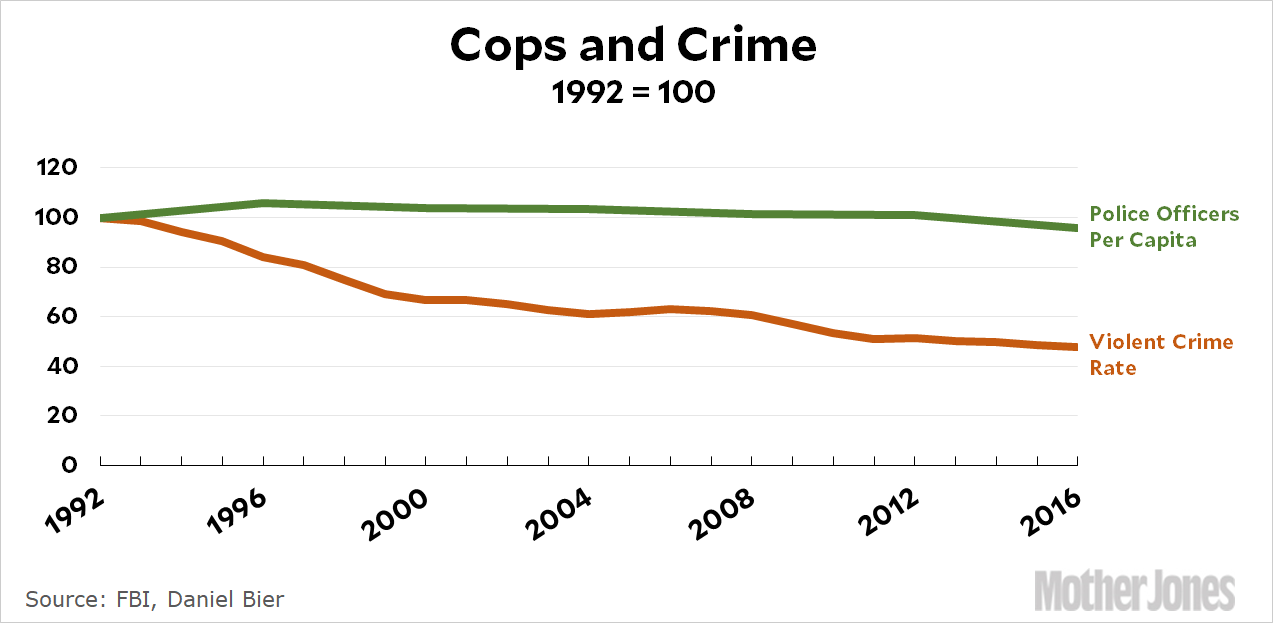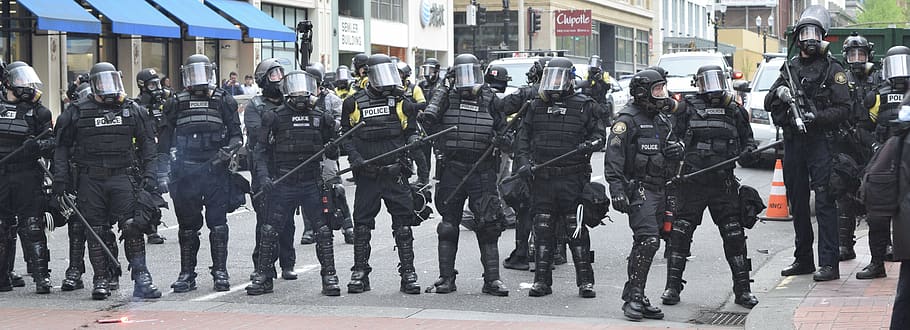 Attorney General William Barr is reported to be sending Bureau of Prison riot control troops to Washington, D.C. and … Miami. I’m unclear if these are Special Operations and Response Teams (SORT), or Disturbance Control Teams, or something else — sadly we have so many different paramilitaries in this country that it is really hard to keep track.
Attorney General William Barr is reported to be sending Bureau of Prison riot control troops to Washington, D.C. and … Miami. I’m unclear if these are Special Operations and Response Teams (SORT), or Disturbance Control Teams, or something else — sadly we have so many different paramilitaries in this country that it is really hard to keep track.
Whichever they are, the fundamental idea is so broken that it almost seems pointless to look at its entrails, but after explaining why this is nuts in general, I’ll explain why it’s nuts in particular.
The idea is nuts in general, because it’s an almost inevitable rule that shows of force against generally peaceful protestors end in tears and tragedy. Similarly, even a degree of restraint against an ugly mob throwing the occasional rock can pay off handsomly in saved lives and long-run peace. That doesn’t, however, mean police should, if they have the numbers, permit looting and arson, as those too have bad long-run consequences. The problem with a lot of police presences around the country is that they’ve been too violent, not that they’ve been too ‘weak’. We have the videos to prove it. And those are officers who, in theory at least, are trained to deal with citizens who are innocent until proven guilty.
Contrast that (desired) mind-set with the role of officers in the Prisons. Prisons are places where the inmates have radically reduced rights. I recall working on a pro se prisoner case as a law clerk more than 30 years ago. The prisoner had alleged that during a prison riot he lay on the ground unmoving, but that an officer nonetheless came along and shot him in the back. It turned out that circuit law precluded almost any claim a prisoner might make in a riot: for example if he had been standing, or hiding, or moving, his claim might be barred. But claiming a constitutional violation for being shot in the back while lying face down unmoving in the open was not then precluded by 7th circuit precedent. (I’d be unsurprised to hear that the 7th Circuit has filled that narrow gap by now.) So we let the case proceed past the government’s motion to dismiss and set it for discovery. That is the mindset that Bureau of Prison riot control officers bring to a confrontation. Is that what we want to unleash on our citizens? There’s no reason at all to think people habituated to treating anyone breathing as a target will be the least bit discriminating.
The idea of bringing people who for better or worse are trained at a particular kind of potentially indiscriminate violence onto our streets and unleashing them on our citizens would be madness in any but the most authoritarian regime. Yet, this is only early June, who knows how deep rock bottom may lie.
In that context, speculating about why Miami and Washington, DC, are specially blessed seems almost besides the point. But since I live just south of Miami, indeed in a county that outsiders often call Miami (it’s Miami-Dade), I have some interest in that question.
Let me start by saying I’ve paid a lot more attention to the news about developments here than in DC. My sense, though, is that in Miami, and maybe to a very slightly lesser degree in DC, the police have behaved really well. (And here in Coral Gables, both police and protestors had a very civil event.) There was some protester or opportunist violence in Miami: five police cars were attacked, some destroyed, and a handful of business in the fancy Bayside Mall got looted. But overall, given the scale of the protests, the primary disruptions were to transit and to traffic on I-95, which was blocked for hours. The police by and large seem to have handled all this with aplomb.
I gather there was some destruction in DC as well and (unlike Miami) numerous injuries to law enforcement personnel. At one point someone in the White House pulled the plug on the lights, and took Trump into a secure basement. I presume this was out of caution, not a desire to emulate presumptive Democratic nominee Joe Biden.
It being the nation’s capital, and there being some fear running around in the White House, one can perhaps understand why someone there wants reinforcements. But, why Miami of all places? It’s not been perfect here, but it’s been a lot better than many other places.
So here’s some wild speculation:
Theory 1: The real goal is to create more violence. Team Trump is betting it’s 1970 all over again, and they want their Kent State to rally the base. Thus, picking towns where there hasn’t been ‘enough’ violence makes sense.
Theory 2: DC gets the nod because it’s DC. Miami because it’s close to Mar-a-Lago.
Theory 2A: The cities are close to where the relevant units are based (NB: I have no idea where they are actually based….)
Theory 3: DC is DC; Florida is an essential swing state and it’s suddenly slipping away. The elderly vote has started to turn against Trump; playing the law-and-order card against ‘radicals’ (and those people), might win them back.
I’m open to other, better, explanations. Bring them on, please. Because right now it looks like cynicism overlaying evil.




 Attorney General William Barr is reported to be sending
Attorney General William Barr is reported to be sending